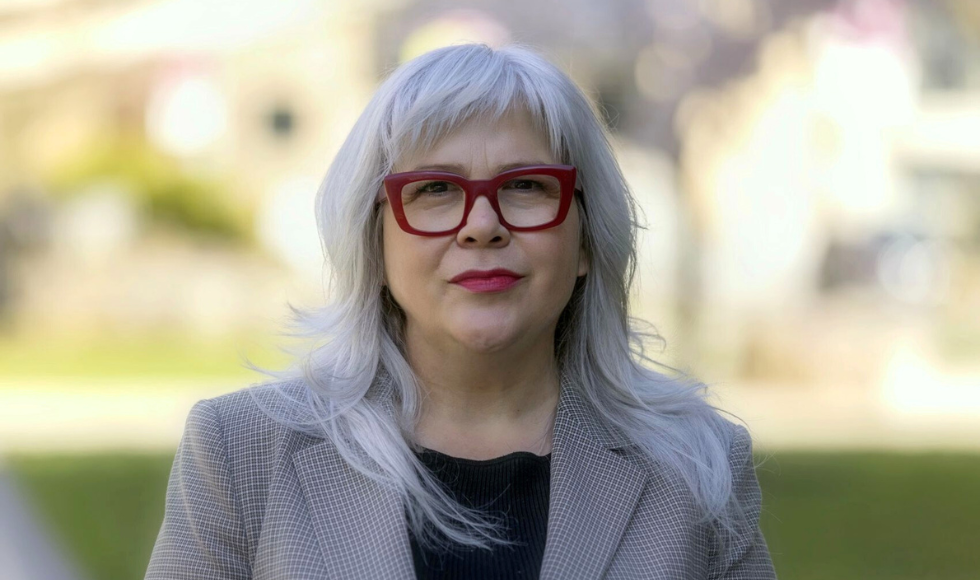New report reveals researchers across Canada face barriers to community innovation and impact

A new report and discussion paper from a team led by Sandra Lapointe, a professor in the Faculty of Humanities’ Department of Philosophy, examines the gap between universities’ stated vision for community innovation and impact, and its actual implementation.
BY Nadia Lana
May 3, 2024
There’s a difference between words and action at Canada’s universities when it comes to supporting community innovation and impact, a new report says – and that’s affecting the ability of researchers to make a measurable difference in the communities around them.
Led by Sandra Lapointe, a professor in the Faculty of Humanities’ Department of Philosophy, the report and discussion paper reveals that although universities are starting to recognize the importance of community innovation and impact, there is a disconnect between what some Canadian universities say about their commitment to this work and the actual support provided to social sciences, humanities, and arts (SSHA) researchers.
The report includes the results of a survey Lapointe and colleagues conducted of SSHA faculty, individuals in leadership positions, and those who work in community engagement and knowledge mobilization across 97 Canadian public universities.
“We wanted to understand what the barriers are to building the kinds of relationships with the community that actually lead to innovation and impact,” explains Lapointe.
“Publish or Perish”
Traditional academic culture, Lapointe says, was ranked as the main roadblock.
“Culture is something that is both structural and very complex. Institutional cultures are influenced by things like incentives and policies around tenure, promotion and merit recognition,” she explains.
“The widespread absence of institutionalized mechanisms to value the kind of work that creates innovation and impact in the community is making it impossible for the culture to change.”
Bibliometric measures – like number of publications, journal impact rating, and citation counts – are an important factor for promotion and tenure in many institutions, contributing to a “publish or perish” culture that doesn’t reflect the value of community-focused work.
“And evaluating research based on bibliometric calculations is an aberration,” says Lapointe. “The scientific community is realizing that counting publications is not an adequate method for assessing the value of scholarship or its impact.”
In fact, the San Francisco Declaration on Research Assessment (DORA), first developed in 2012, is a sign that attitudes are moving in the right direction, Lapointe says.
Signed by more than 24,000 researchers and organizations including Canada’s Social Sciences and Humanities Research Council (SSHRC), DORA outlines recommendations for improving the way research is evaluated. These include evaluating scientific content rather than publication metrics and measuring impact of research outputs more broadly – such as influence on policy and practice.
“What does return on investment look like in higher education? Does it look like long lists of publications in journals that serve disconnected, hyperspecialized academic circles? Should this be what we value most? What else does it look like? I think we need to really think about that,” Lapointe adds.
Disconnect between faculty and university leadership
The report also highlighted differences between faculty and university leadership’s perception of how strongly community impact and innovation are incentivized.
While a large portion of the faculty surveyed indicated that community-focused knowledge mobilization is not supported or incentivized, those in leadership positions tended to respond either neutrally (“neither agree nor disagree”) or more positively to the same statements.
And while things may be moving in the right direction in some institutions— Lapointe says McMaster has been supportive of her work around The/La Collaborative (a research network concerned with how social and human research can be used to build skills and capacity for innovation in the social sector and beyond) for example — there are still areas that need improvement.
“We have to do our homework,” Lapointe says. “We have to figure out what is being done, what is not being done, and where we want to take universities’ community innovation and impact efforts.”
Upcoming forum on social innovation and impact
The outcomes of the survey will be one of the many topics of discussion this June at the second Canadian Forum for Social Innovation in Montreal.
The forum, which will gather together policy-makers, social sector leaders, stakeholders in research and higher education, and SSHA researchers, will focus on developing a roadmap for Canada’s innovation ecosystem that includes a strong emphasis both on social impact and the social implications of technological advancements.
“It’s a consultative exercise. It’s not a conference, it really is more like a national dialogue,” Lapointe explains.
The inaugural Forum took place in October 2022 at McMaster.
“In 2022, we decided to formally create a new outlet for thinking about social innovation, or the social dimension of innovation, or what social science and humanities can contribute to innovation.
“We thought that the conversation about innovation was very much about tech, but the future challenges are not tech challenges: they will require human and social solutions.”


